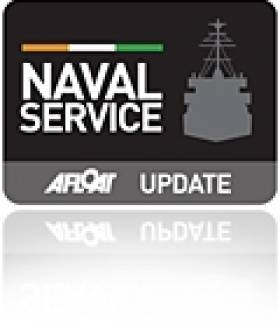Displaying items by tag: Eithne Rescues Migrants
#EithneMedRescue – Naval Service 'flagship' LÉ Eithne (P31) successfully located and rescued 367 migrants on a wooden barge yesterday some 50kms north-west of Tripoli, the Libyan capital.
Almost the same number of migrants again on a barge were rescued earlier this month off the North African coast.
According to the Naval Service, conditions during this latest indicdent were choppy with the operation commencing at 7.25 am during a south easterly 1 metre high swell. All migrants were successfully taken on board by 10.09 am. On board the LÉ Eithne were 278 male, 80 female and 9 children where they received medical screening, food and water.
The LÉ Eithne next tasking will be under the direction of the Italian Maritime Rescue Co-Ordination Centre.
A month ago today LÉ Eithne departed Cork Harbour on the 16th of May to assist the Italian Authorities in the humanitarian search and rescue operations in the Mediterranean.
The role of the Irish Naval vessel will be to provide a search and rescue capability and to undertake humanitarian rescue operations at sea in the Mediterranean.
Assistance to persons in distress at sea will be provided in accordance with the applicable provisions of international conventions governing search and rescue situations.
The Naval Service vessel will be deployed in the Mediterranean for a period of up to six months over the summer period, subject to the operational demands and requirements arising in the theatre of operations.





























































